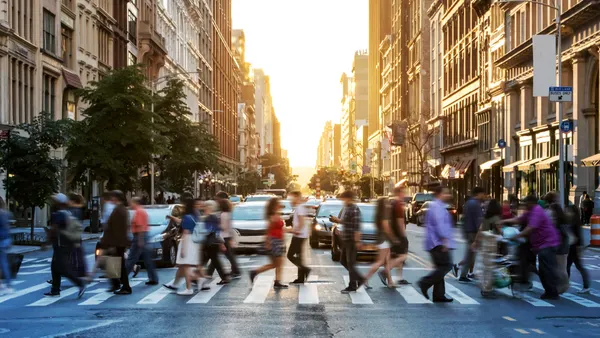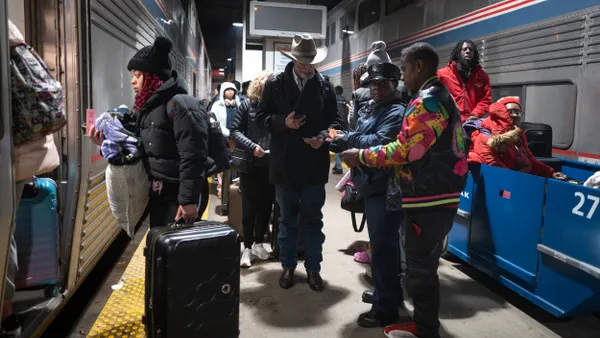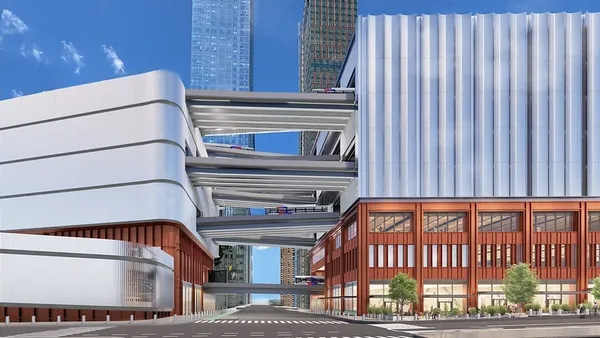Dive Brief:
- The City of Los Angeles has endorsed a plan by the nonprofit Natural Resources Defense Council (NRDC) intended to make L.A. a national leader in transportation.
- The report recommends an incentive system for using electric vehicles (EVs) in ride-sharing; piloting a congestion pricing zone; and reducing or eliminating minimum parking requirements in the city's zoning code, among other initiatives.
- "This policy framework is designed to put the city on a path to cleaner air and better access to transportation for Angelenos of all income levels — setting a model for cities nationwide to follow," Amanda Eaken, Director of Transportation and Climate with NRDC's Healthy People and Thriving Communities program, said in a statement.
Dive Insight:
In a city traditionally known for congested streets and unrelenting traffic delays, this report and its endorsement by city leaders appears to be a move toward a future with less single-occupancy cars in Los Angeles. And in announcing the report's endorsement, the NRDC notes that L.A. already ranks highly for daily public transportation ridership, and leads the way on car-sharing, bike-sharing, and environmental sustainability. Although, with about 34% of its greenhouse gas emissions coming from transportation, there is work to do.
Los Angeles is not the only city to grapple with how it can offer its residents more transportation options while simultaneously reducing its emissions and becoming more environmentally friendly. Seattle is considering a raft of proposals, including a congestion pricing initiative of its own, expanded transit and greater use and promotion of EVs. "The decisions we make today will determine what kind of neighborhoods our kids will live in tomorrow," Los Angeles City Councilmember Mike Bonin said in a statement.
In conjunction with looking to help the city's emissions, the report also explores the effect of ride-sharing companies like Uber and Lyft on congestion and the environment, something that the companies themselves are starting to do, too. Earlier this week, Uber CEO Dara Khosrowshahi announced a slew of new partnerships, including a collaboration with SharedStreets on curbside data to help cities lower congestion from ride-hailing apps, taxis, delivery drivers and other obstacles.
The NRDC sounded hopeful that Los Angeles can make the changes necessary to improve transportation choices and reduce emissions. Seleta Reynolds, General Manager of the Los Angeles Department of Transportation, said in a statement that the city could "reap the most benefits or possibly suffer the greatest negative effects" of innovations, hence the need for an action plan.
But in a blog post for NRDC, Carter Rubin, a mobility and climate advocate for urban solutions, said it can help underserved communities and keep L.A. as a national leader. He said the NRDC is "confident the city can not only reinvent how Angelenos get around but also achieve cleaner air and greater access to the wonderful opportunity the region provides."










